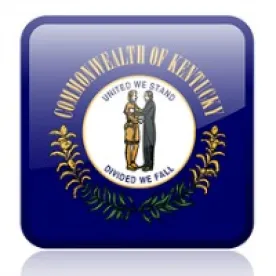The Environmental Protection Agency (EPA) found that the State Implementation Plans (SIPs) of 36 states were substantially inadequate due to their regulatory treatment of excess emissions associated with startups, shutdowns and malfunctions at regulated facilities. The agency issued a SIP Call to each of those states to correct the deficiencies. For Kentucky, the SIP Call was directed at §1 of 401 KAR 50:055. More than a year later, the deadline of November 22, 2016 for Kentucky, and the other states to respond, is rapidly approaching.
Kentucky has reportedly been evaluating a number of different options, including amendment of 401 KAR 50:055 to remove the provisions EPA found objectionable, amendment of the regulation to provide for enforcement discretion, removal of the regulation for the SIP while keeping it in effect as a matter of state law, or revision of the regulation to establish work practice standards that would apply during startup and shutdown in lieu of numeric emission limits. The Division ultimately proposed to respond to the SIP Call by removing §1 (1) and (4) from the SIP without any amendments of 401 KAR 50:055 itself. Thus, the regulation would remain in effect in its entirety as a matter of state law. A public hearing on the Division’s proposal was held on September 14, 2016.
Other states in Region 4 have been dealing with these issues as well, and EPA has provided preliminary feedback on options being explored by some of the states. Both Georgia and North Carolina were proposing revised regulations that provided for establishment of work practice standards that would apply during startup and shutdown events, instead of numeric emission limits. Reports of preliminary federal feedback are that establishment of alternative emissions limitations for periods of startup and shutdown would require a source category specific analysis of the need for the alternative, its stringency and enforceability and that any alternative limits would need to be included in a source-specific SIP provision. In other words, even if the standards were included in a federally enforceable permit issued pursuant the state permitting program that is part of the SIP, the alternate limits would have to be separately approved into the SIP.
Meanwhile, briefing in the D.C. Circuit litigation challenging EPA’s final decision to issue the SIP Call proceeds. Seventeen states, including Kentucky, filed suit. That suit, along with others filed by industry and trade associations, has been consolidated with the lead case being Walter Coke, Inc. v. U.S. EPA, Case No. 15-1166. As previously reported, the briefing will not be completed until October 19, 2016 based on the schedule established by the court, so a final ruling will not occur before the November 22 deadline for the states’ response to the SIP Call.



 />i
/>i

